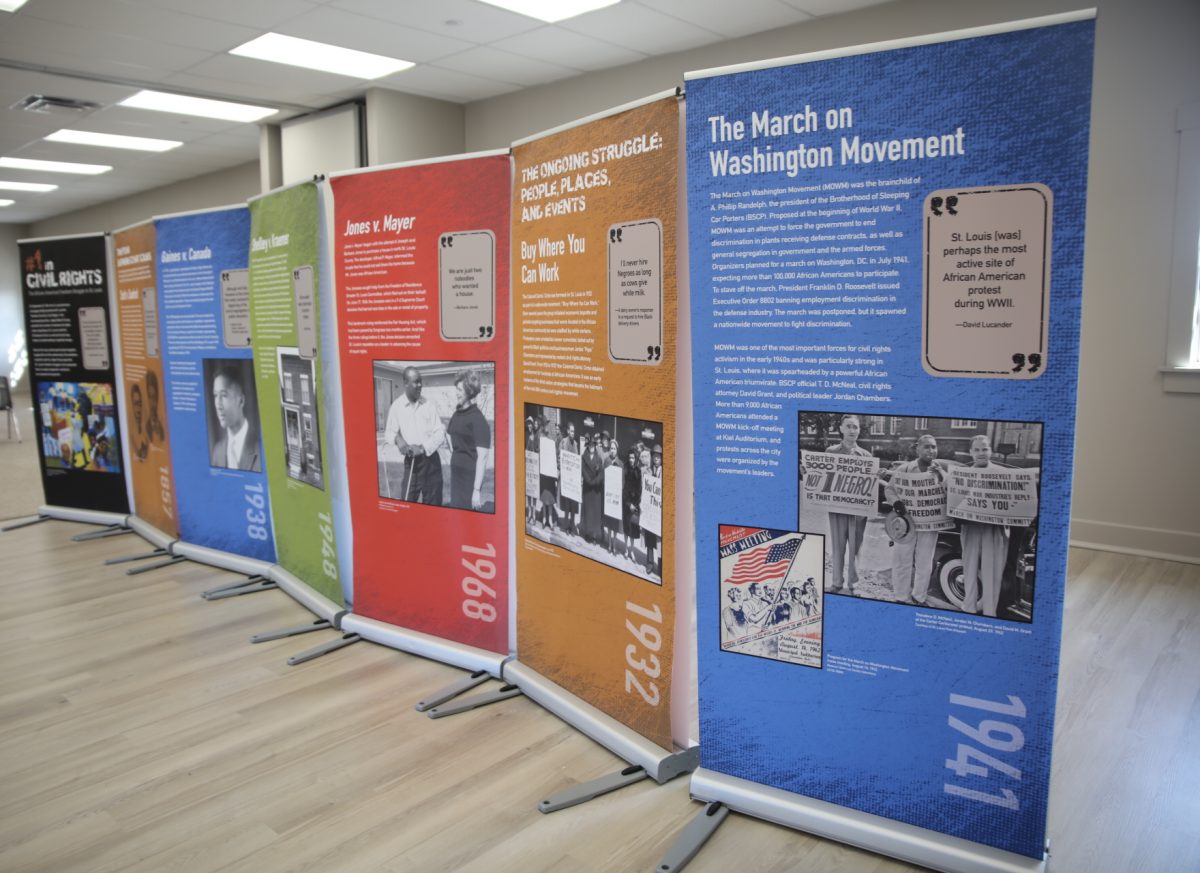The county Board of Equalization was scheduled to meet this week to revisit its decisions regarding the 2011 assessed valuations of the county’s casinos.
The board was scheduled to meet Tuesday — after the Call went to press.
At issue is the board’s recent decision to lower the total assessed valuations of River City Casino in Lemay and Harrah’s Casino in Maryland Heights.
The move sparked criticism last week from a number of county leaders, who in particular were concerned about the more than 40-percent drop in River City’s assessment.
Officials contended local taxing entities stood to lose hundreds of thousands of dollars in revenue from the decision and urged the board to reconsider.
While the appeals board agreed to reconvene, its chairwoman said Friday that the group was standing by its decision for the time being.
The $380 million Lemay casino, like more than 18,000 other county property owners this reassessment year, went before the Board of Equalization unhappy with the assessor’s preliminary assessment of its real and personal property.
County Assessor Jake Zimmerman said his office assessed the casino at roughly $284 million, up from $270 million in 2010. But after conducting a hearing with casino representatives, the three-member appeals board determined Zimmerman’s office over-assessed the property and cut the total value to roughly $164 million — a 42-percent decrease.
“The bottom line is that without any evidence or for reasons that are murky, the Board of Equalization gave a giant windfall to the casino, the result of which is most likely going to be the ordinary taxpayers will get hit with the bill if the board doesn’t change their mind,” Zimmerman told the Call. “… It just defies common sense.”
Zimmerman said River City has been “contesting their property assessments since the day they opened for business.” In addition, the appeals board was aware the casino’s 2010 assessment protest was pending before the Missouri State Tax Commission, he said.
“The Board of Equalization is frankly not competent to make a determination on these complicated things on the basis of a 15-minute hearing, which is why the historic practice of the Board of Equalization in such matters is simply to leave things unchanged and let the State Tax Commission handle it,” said Zimmerman, who administratively has no control over the board. “In this case they obviously chose not to do that and instead they made the outrageous decision we have in front of us.”
But Board of Equalization Chairwoman Leslie Broadnax said River City’s appeal was treated the same as that of any taxpayer.
“We listened to both sides and we took into consideration all information that was presented,” Broadnax told the Call. “At the conclusion of the hearing, the three of us deliberated regarding our decision. We believe the decision we made at that time was fair market value of the property based on the evidence that was presented.”
She said the casino presented “voluminous materials” as part of its appeal, such as income and accounting statements. What wasn’t taken into account, she added, was the casino’s 2011 revenues to date or its recently revealed plans for an $82 million expansion.
A Missouri Gaming Commission report shows River City took in $16.4 million in revenue in August alone, up 11.5 percent from $14.8 million in August 2010.
“By state statute we are required to determine fair market value as of Jan. 1, 2011. So I know a lot of people have said, you know, there’s recent announcements or what about all the money that came in, say, July? … Those can’t be considered by statute. It’s as of Jan. 1. It may be great information with respect to valuation in 2012, but I don’t know if a lot of people understand that aspect.”
River City, operated by Las Vegas-based Pinnacle Entertainment, opened in March 2010. A spokeswoman told the Call the casino would not comment on its reassessment.
But officials from Zimmerman to County Executive Charlie Dooley, who appoints Board of Equalization members, called on the body last week to review its decisions for both River City Casino and Harrah’s.
“Given the unique challenges of assessing casino property and the magnitude of lost revenues should the casinos be under-assessed in any manner, I hope you agree it would be appropriate to revisit valuation of the two casinos for the 2011 tax year,” Dooley wrote in a letter to the board, which includes Broadnax, Burton Boxerman and Tom Craddock.
“I’m utterly shocked,” county Port Authority Chairwoman Sheila Sweeney said in a statement about the decreased assessment. “The loss of revenue will be immediately felt in the community of Lemay and throughout St. Louis County.”
The Port Authority owns the River City site and leases it to Pinnacle under a master lease and development agreement.
The Lemay Fire Protection District and Hancock Place School District this week were ready to set their 2011 property-tax rates — a task that must be done by Oct. 1.
“Now we’re scrambling to figure out what the heck we have to do,” said LFPD Board of Directors Chairman Jack Bettag, who noted the estimated loss from River City’s reduced assessment — $557,000 — is one-sixth of the district’s revenue budget.
Budget cuts aren’t feasible because the district’s responsibilities are increasing — due largely to River City’s planned expansion, Bettag said. He noted the district’s 2010 tax revenue from the casino is unusable because it’s under protest.
“We’re very hopeful that the right thing will be done,” Bettag said of Tuesday’s Board of Equalization meeting, but later added, “… That River City Casino is not the bucket of gold some people think it is. It’s anything but that.”
Hancock Superintendent Kevin Carl said the district anticipates rolling up its “blended” property-tax rate 61 cents — from $4.70 to its voter-approved cap of $5.31 per $100 of assessed valuation — to offset an estimated $641,000 in lost revenue.
Like the LFPD, Hancock is trying to avoid program or staff cuts because the school year is well under way, Carl said. He said the revenue drop would’ve been greater were it not for a provision in River City’s lease with the Port Authority that guarantees Hancock $4.3 million per year in casino revenue.
The superintendent called River City a “good partner” in the community.
“My issue is with this process,” Carl said. “Did the Board of Equalization’s process really work the way it was meant to work? I don’t believe it has.”








